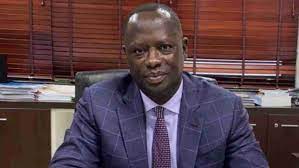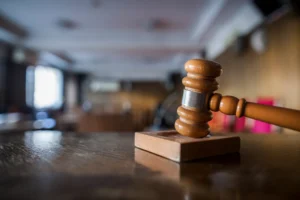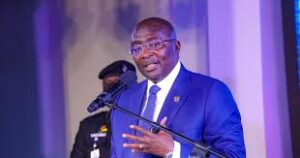Armah-Kofi Buah Outlines Mahama Administration’s Approach to Tackle Galamsey

Emmanuel Armah-Kofi Buah, the Minister for Lands and Natural Resources, has unveiled a strategic plan by the Mahama administration to effectively address the issue of illegal mining, commonly referred to as galamsey, which has become a major environmental and social concern in Ghana.
Speaking on The Point of View program on Channel One TV on Wednesday, Buah provided an in-depth look at the government’s approach, which focuses on both improving regulatory processes and addressing the environmental damage caused by illegal mining activities. The plan involves several key reforms and initiatives designed to ensure that the fight against galamsey is both thorough and sustainable.
Decentralization of Mining Licensing
One of the primary strategies outlined by Buah is the decentralization of the mining licensing process. He emphasized the importance of shifting the licensing authority to the district level in order to involve local governments and communities in the decision-making process. “We want to ensure that mining licensing starts at the district level,” Buah stated. This move is intended to provide local authorities with more control over mining activities in their areas, allowing them to be more attuned to the needs of their communities while addressing illegal mining.
Under this new framework, the District Security Council (DISEC), in partnership with the Environmental Protection Agency (EPA) and the Minerals Commission, would have a central role in recommending mining licenses at the local level. However, final approval of these licenses will still be carried out at the central government level in Accra. This model ensures that local input is considered, while also maintaining the necessary oversight from national institutions.
Commitment to Political Will
Buah also highlighted the strong political will from President John Dramani Mahama in tackling galamsey. He recalled that the President has made it clear that anyone found guilty of engaging in illegal mining within his administration would be held accountable, regardless of their position or status. Buah quoted the President, saying, “When the President says to everybody that if you are in my government and you are caught in galamsey, you’re going to face the same punishment as every Ghanaian, we will not shield you. That is leadership.”
This clear message from the President reinforces the administration’s commitment to maintaining accountability and ensuring that no one is above the law when it comes to illegal mining. The Minister stressed that this principle of equal treatment under the law is vital to creating a fair and effective response to galamsey.
Reforming Licensing Processes for Transparency
Another key aspect of the government’s strategy is a review and reform of the mining licensing process to enhance transparency and eliminate corruption. Buah pointed out that the government would not tolerate political favoritism when it comes to issuing mining licenses. “We can’t be giving political licenses, we can’t be licensing cronies without following the proper processes,” he stated.
These reforms are intended to ensure that mining activities are conducted legally and ethically, with licenses being granted based on merit rather than political connections. By eliminating bias and ensuring a more transparent process, the government aims to restore public confidence in the mining sector and prevent the exploitation of the system for personal or political gain.
Environmental Restoration Initiatives
Beyond regulatory measures, the Mahama administration is also focused on addressing the environmental damage caused by galamsey. Buah highlighted two key initiatives designed to rehabilitate areas that have been severely affected by illegal mining. The first initiative is the “Tree for Life” program, which aims to restore degraded lands and promote reforestation efforts in areas that have been stripped of vegetation due to illegal mining activities.
In addition, the government is deploying “Blue Water Guards” to protect the country’s water resources from the pollution caused by galamsey. These environmental initiatives are part of a broader strategy to not only halt illegal mining but also to repair the damage that has already been done to the environment. By restoring ecosystems and protecting vital water bodies, these programs aim to ensure that Ghana’s natural resources are preserved for future generations.
Conclusion
The Mahama administration’s comprehensive approach to combating galamsey involves a combination of decentralizing the mining licensing process, ensuring political accountability, reforming licensing practices to increase transparency, and launching initiatives to restore the environment. With these measures, the government aims to address both the immediate challenges posed by illegal mining and the long-term impact it has on the environment and society. By engaging local authorities, promoting fairness, and prioritizing environmental restoration, the administration hopes to create a sustainable solution to the galamsey crisis.






